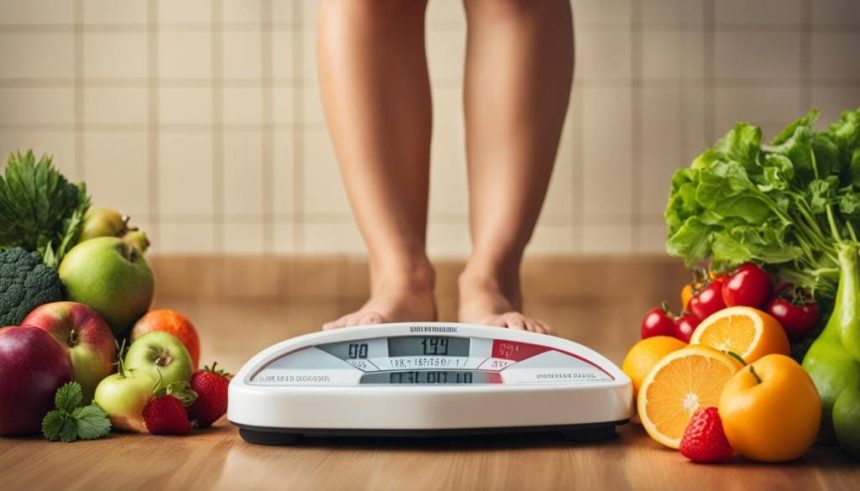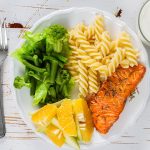When it comes to weight loss, one of the most common debates is whether nutrition or exercise plays a more important role. While both are needed for your health and your fitness, understanding how both of those impact your weight loss can really help you to make better decisions towards your fitness journey.
In this blog post, we are going to explain what is more important, nutrition or exercise. We’ll use science for both things and see how they impact your weight loss, so that in the end, you’ll know how to use both exercise and nutrition to achieve your goals.
The Science Behind Weight Loss
First of all, we need to understand how weight loss actually works. Losing weight comes down to one simple concept: caloric deficit. To be in caloric deficit you need to eat less calories than your body needs to maintain current weight. While you’re in caloric deficit your body will start to use energy that is stored in your fat, resulting in weight loss.
Both nutrition and exercise will help you to be in caloric deficit, but they do it in different ways. Nutrition controls the number of calories you eat, while exercise will help you to burn additional calories. Now comes the question, which one of these is more important for weight loss ?
Nutrition – The Foundation of Weight Loss
Many experts argue that nutrition is the most important thing when it comes to weight loss, and here’s why:
-
It’s easier to create Caloric Deficit through diet
The biggest reason why nutrition is the most important thing when we talk about weight loss, is because it’s far easier to reduce calories through diet then it is to burn them through exercise. For example, if a donut has 300 calories, in order to burn those 300 calories, you would need to run for 30-40 minutes, depending on weight and your pace. It’s much easier to avoid eating donut than it is to burn those calories later.
-
Controlling Portion Sizes
Nutrition gives you complete control over your calorie intake. You can make healthier choices by managing portion sizes, cutting out processed foods, and focusing on nutrient-dense meals. By making small changes, like reducing sugar, limiting refined carbs, and consuming more vegetables and lean proteins, you can easily lower your daily calorie consumption.
-
Quality Matters
Not all calories are the same. Eating a diet rich in whole, nutrient dense foods can help you regulate hormones that control hunger and satiety. For example, foods high in fiber and protein help you feel fuller for longer, reducing overall calorie intake. On the other hand, processed foods high in sugar and unhealthy fats can lead to overeating and cravings, making it harder to maintain a caloric deficit.
-
It Impacts Your Metabolism
What you eat can have a huge impact on your metabolism. A diet high in protein can boost your metabolic rate due to the thermic effect of food the number of calories your body uses to digest, absorb, and process nutrients. But for example diet high in carbohydrates can cause insulin spikes and fat storage, which will slow down your progress.

Exercise: The Catalyst for Fat Loss and Fitness
While nutrition is the most important, exercise also plays an important role in weight loss. It’s not just about burning calories, exercise also has its own benefits that will support long-term weight management.
-
Increases Calorie Burn
Exercising will help you to burn more calories throughout the day. While a workout will burn 300-500 calories, the snowball effect of every day activity will help you to boost your daily caloric expenditure. Regular exercise will speed up your fat loss.
-
Builds Muscle and Increases Metabolism
One of the best benefits of exercise is that it helps you to gain more lean muscle mass. Muscle is metabolically active, meaning it burns more calories at rest than fat. The more muscle you have, the more calories you burn, even when you’re not working out. Strength training is very important for preserving muscle during weight loss, which can prevent metabolic slowdowns and help you maintain your progress.
-
Improves Cardiovascular Health
While nutrition is the most important for weight loss, exercise is for overall health. Regular physical activity improves cardiovascular fitness, lowers blood pressure, and reduces the risk of chronic diseases like heart disease, diabetes, and stroke. By incorporating both aerobic and strength training exercises into your routine, you’ll enhance your body’s ability to function optimally while losing weight.
-
Boosts Mood and Motivation
Exercise doesn’t just affect your body, but also your mental health. Physical activity releases endorphins, the feel-good hormones that boost your mood and reduce stress. This can help you stay motivated on your weight loss journey, especially when progress feels slow. Regular exercise can also improve your sleep quality, further supporting your weight loss goals.
Now that we’ve explored the benefits of both nutrition and exercise, it’s time to answer the big question: which one is more important for weight loss?
Studies show that while exercise leads to weight loss, the most results will come from adjusting your diet. In fact, weight loss is often described as 80% nutrition and 20% exercise. You can’t out-exercise a poor diet, no matter how hard you work in the gym. If you’re not eating in a caloric deficit, it will be nearly impossible to lose weight, even with intense workouts.
That said, exercise plays a crucial role in maintaining weight loss, improving body composition, and boosting overall health. Combining both good nutrition and regular physical activity is the key to not only losing weight but also keeping it off and feeling your best.
Also one more thing, you should also include supplements in order to make bigger and faster progress in your weight loss journey. Here are 3 supplements that you should try:
Retatrutide peptide: Retatrutide is an experimental drug currently being studied for its ability to promote weight loss. Unlike supplements, Retatrutide targets multiple hormone pathways, including GLP-1, GIP, and glucagon receptors. These hormones regulate appetite, glucose metabolism, and energy expenditure, making Retatrutide peptide a potentially powerful tool for managing obesity.
Protein Powder: A high-protein diet is essential for anyone trying to lose weight. Protein powder, whether it’s whey, casein, or plant-based, helps to increase feelings of fullness, reduce appetite, and prevent muscle loss during weight loss. Protein is also thermogenic, meaning your body burns more calories digesting it compared to carbs or fats.
Green Tea Extract: Green tea extract is rich in antioxidants, mainly catechins, which have been shown to boost your metabolism and increase fat burning. EGCG (epigallocatechin gallate), which is the main antioxidant in green tea, helps to increase calorie expenditure and fat oxidation. Studies suggest that it can be very effective when combined with regular exercise. Green tea extract also contains caffeine, which can further enhance fat burning and improve exercise performance.
Conclusion
While nutrition has the most significant impact on weight loss, exercise is a powerful tool that can improve your results, improve your health, and help you maintain your progress. By focusing on both aspects, you’ll not only lose weight but also build a stronger, healthier body in the process.





